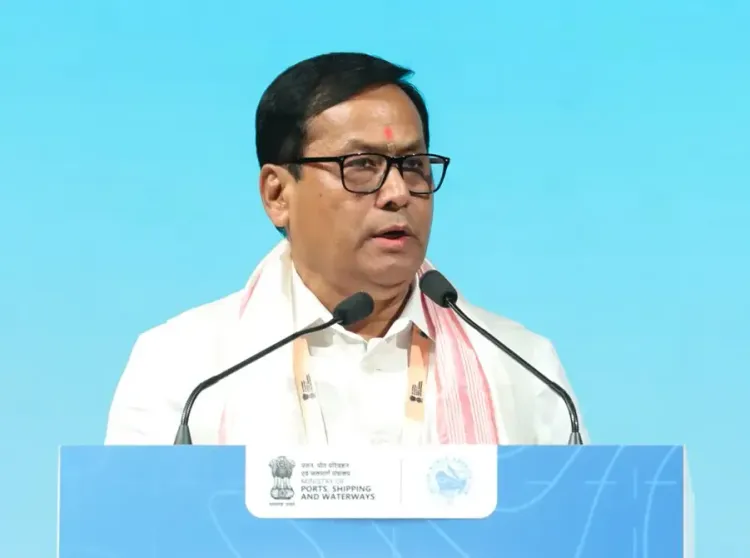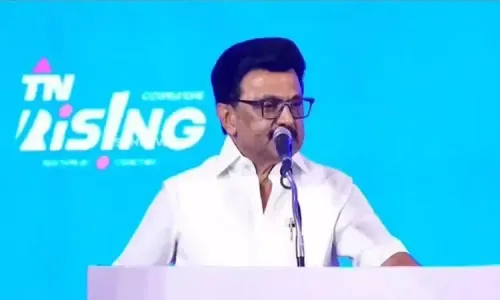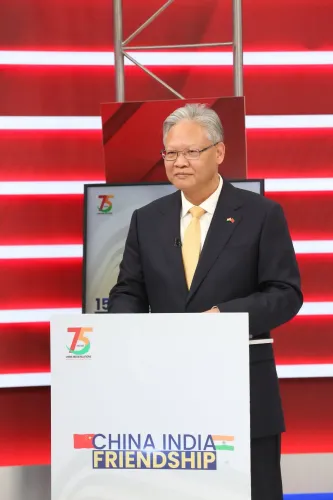Can India and South Korea Forge a Stronger Maritime Partnership?

Synopsis
Key Takeaways
- India aims for top 5 global shipbuilding status by 2047.
- $24 billion investment in shipbuilding initiative.
- Collaboration with South Korea for technology transfer.
- Expansion of commercial fleet from 1,500 to 2,500 vessels.
- Strategic geographic advantages for shipbuilding.
Seoul, Nov 25 (NationPress) India views South Korea as a vital ally in its pursuit of enhancing its shipbuilding capacity and fortifying maritime security, according to Sarbananda Sonowal, the Minister of Ports, Shipping and Waterways. He highlighted New Delhi's goal to rank among the world's top five shipbuilding nations by 2047.
In an interview with the Yonhap News Agency, Sonowal emphasized that South Korea's success in achieving rapid economic growth offers invaluable insights for India as it advances its “Viksit Bharat 2047” initiative, aimed at becoming a developed nation by the centenary of its independence.
As part of this maritime objective, India aims to be one of the top ten shipbuilding countries by 2030 and ultimately ascend to the top five by 2047. The Indian government has earmarked $24 billion for this initiative, planning to increase its commercial fleet from 1,500 to 2,500 vessels to enhance self-sufficiency.
Realizing these ambitious goals will necessitate global partnerships, the minister noted, adding that South Korea's cutting-edge shipbuilding technology and its track record in constructing “reliable and timely ships with high quality specifications” make it a crucial collaborator for India, as reported by Yonhap.
“South Korea's distinct advantages in precision engineering, liquefied natural gas (LNG) expertise, and efficient production systems can hasten India's ascent in the global shipbuilding arena,” he stated.
Furthermore, Sonowal remarked that India can learn significant lessons from South Korea's own economic development path, which showcases the importance of a “focused industrial policy, technology absorption, and a disciplined workforce.”
“Korea's achievements illustrate how targeted incentives and continuous innovation through government-industry-academia collaborations can swiftly enhance capabilities, which is highly pertinent to India's aspirations for 2047,” he added.
In July, HD Hyundai entered into a partnership with India's state-run Cochin Shipyard Ltd. to foster bilateral collaboration in shipbuilding, marking the inaugural partnership between a South Korean shipbuilder and an Indian firm.
Sonowal expressed optimism that such collaborations in shipbuilding will yield substantial long-term advantages for both nations.
India's geographic benefits, including its closeness to Africa, South and West Asia, and the shipping corridor between Asia and Europe, further position it as an appealing and cost-effective production hub for Korean companies, he noted.
In September, the Indian government authorized a package of approximately Rs 697 billion ($8 billion) to rejuvenate India's shipbuilding and maritime sectors and enhance domestic shipbuilding capabilities.
“Korea can emerge as a strategic investor and capability partner, aiding India in adopting state-of-the-art ship designs, production methods, automation, green shipping technologies, and global quality standards,” Sonowal concluded.









